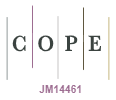Reflections on education for resistance and emancipation in the light of theodor adorno´s thought
DOI:
https://doi.org/10.5585/eccos.n71.27572Keywords:
true consciousness, emancipation, resistanceAbstract
This article evaluates the theme related to education as seen on the thoughts of Theodor W. Adorno (1903 – 1969), with the aim of explaining the dual function applied to forming the autonomous subject in the capitalist society. To attain this, there is, on the one hand, education that gives precedence to the function of adapting individuals to control mechanisms of the present-day society and, on the other hand, the author highlights the resistance aspect of education, enhancing thinking and the criticism exerted by individuals about the socially constituted reality. In the first case, considered extremely important, education embodies the stage of integrating the individual into the social collective, while in the second case, no less relevant, resistance shapes itself into a movement to challenge what invalidates the critical subjectivity of individuals within the society. However, in the capitalist society, education, when linked to technical-scientific rationality, results in attaching importance to the adaptation aspect thus curtailing the resistance dimension. With this, there is a predisposition to promote the technical-professional improvement of the individual, as if such procedure were synonymous with autonomy, in the Kantian sense of self-government. The effort to act without the supervision of others changes itself into the operationalization of knowledge to produce goods, thus satisfying the economic interests of that society.
Downloads
References
ADORNO, T. W. Dialética negativa. Trad. Marcos Antônio Casanova. Rio de Janeiro: ZAHAR, 2009.
ADORNO, T. W. Educação e emancipação. Trad. Wolfgang Leo Maar. Rio de Janeiro: Paz e Terra, 1995.
ADORNO, T. W. Teoria da semiformação. In: PUCCI, Bruno; ZUIN, Antônio A. S.; LASTÓRIA, Calmon Nabuco (orgs.). Teoria crítica e inconformismo. Trad. Newton Ramos-de-Oliveira, Bruno Pucci e Claudia Barcelos de Moura Abreu. Campinas, SP: Autores Associados, 2010. (Coleção Educação Contemporânea).
ADORNO, T. W.; HORKHEIMER, M. Dialética do esclarecimento: fragmentos filosóficos. Trad. Guido Antônio de Almeida. Rio de Janeiro: Jorge Zahar, 1985.
BUCK-MORSS, Susan. Origen de la dialética negativa – Theodor W. Adorno, Walter Benjamin y el Instituto de Frankfurt. Trad. Nora Rabotnikof Maskivker. Buenos Aires, Eterna Cadencia Editora, 2011.
DESCARTES, René. Discurso do método. Trad. J. Guinsburg e Bento Prado Júnior. São Paulo: Abril Cultural, 1979. (Os pensadores).
FEUERBACH, Ludwig. Princípios da Filosofia do Futuro e outros escritos. Trad. Artur Morão. Lisboa: Edições 70, 1988.
HORKHEIMER, Max. Sobre o Problema da Verdade. ln: HORKHEIMER, Max. Teoria Crítica: uma documentação. Tomo I. São Paulo: Perspectiva: Editora da Universidade de São Paulo, 1990. p. 139-174. (Coleção Estudos, 77).
KANT, Immanuel. “Resposta à pergunta: que é o esclarecimento?” In: KANT, Immanuel. Textos Seletos (edição bilíngue). Trad. Raimundo vier. 2 ed. Petrópolis: Vozes, 1985.
MAAR, Wolfgang Leo. A guisa da introdução: Adorno e a experiência formativa. In: ADORNO, T.W. Educação e emancipação. Rio de Janeiro: Paz e Terra, 1995.
MARX, K.; ENGELS, F. O Manifesto do Partido Comunista. Porto Alegre: L&PM, 2001.
NASCIMENTO, E. de S. A crítica da racionalidade técnico-científica e a formação do sujeito autônomo em Adorno no contexto da sociedade capitalista. 2018. 136f. - Tese (Doutorado) - Universidade Federal do Ceará, Programa de Pós-graduação em Educação, Fortaleza (CE), 2018.
PUCCI, Bruno. Theodor Adorno, educação e inconformismo: ontem e hoje. In: PUCCI, Bruno; ZUIN, Antônio A. S.; LASTÓRIA, Luiz A. C. Nabuco (orgs.). Teoria crítica e inconformismo – novas perspectivas de pesquisa. Campinas, SP: Autores Associados, 2010.
RUSSELL, Bertrand. Lógica e conhecimento. Trad. Pablo Rubén Mariconda. São Paulo: Abril Cultural, 1978. (Coleção Os pensadores).
TÜRCKE, Cristoph. Proto-socorro para Adorno: fragmentos introdutórios à dialética negativa. In: ZUIN, Antônio A. S; PUCCI, Bruno; RAMOS-DE-OLIVEIRA, Newton (orgs.). Ensaios frankfurtianos. São Paulo, Cortez, 2004.
WITTGENSTEIN, Ludwig. Tractatus logico-philosophicus. 2. ed. Trad. Luiz Henrique Lopes dos Santos. São Paulo, EDUSP, 1994.
ZUIN, Antônio A. S. Educação e emancipação: Adorno, crítico da semicultura. Pro-Prosições, V. 8, N. 2 [23]. Campinas, Março de 1999.
ZUIN, Antônio A. S.; PUCCI, Bruno; RAMOS-DE-OLIVEIRA, Newton. Adorno: o poder educativo do pensamento crítico. Petrópolis, RJ: Vozes, 1999.
Downloads
Published
How to Cite
Issue
Section
License
Copyright (c) 2024 Ermínio de Sousa Nascimento

This work is licensed under a Creative Commons Attribution-NonCommercial-ShareAlike 4.0 International License.
- Abstract 138
- pdf (Português (Brasil)) 97






